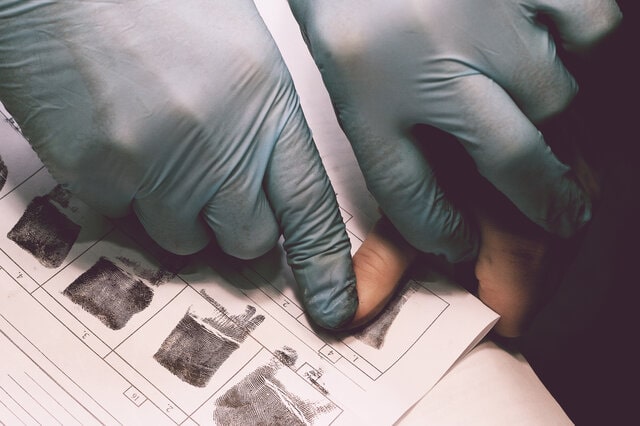A Guide to Felonies in Georgia FAQ
What Is a Felony in Georgia?
A felony in Georgia is a crime that carries a sentence of more than twelve months up to life imprisonment.
The law defines a felony offense as a serious crime against another person. They include various offenses, including violent crimes, like murder and kidnapping. Certain felonies are non-violent, like embezzlement or forgery. A misdemeanor can also be elevated to a felony in the event of multiple convictions, use of a firearm, or violent force.
A felony conviction has several negative implications in a person’s life. The Office of AJL has prepared this collection of frequently asked questions (FAQs) regarding felonies in Georgia to enhance your understanding of felonies and help you avoid such circumstances.

What Are Some Common Examples of Felony Crimes in Georgia?
While felonies are serious and often violent, they are not always so. Some common examples of felony offenses include:
-
Burglary
-
Criminal damage to property
-
Drug Possession
-
Drug Trafficking
-
Financial Card Theft
-
Fraud
-
Forgery
-
Possession with Intent to Distribute Drugs
-
Theft
Some violent offenses, such as aggravated assault and acts of terroristic threats, also qualify as felonies.

What Are the Classes of Felonies in Georgia?
Felonies are charged as first, second, or third-degree crimes. First-degree offenses represent the most serious felonies, including murder, while third-degree crimes cover offenses like forgery or arson.
The Georgia Code does not divide felony crimes into classifications, such as Class A or level 1. Georgia law distinguishes between offenses by specifying the maximum penalty allowed on a crime-by-crime basis depending on the level or degree of seriousness.
Penalties for Felonies in Georgia
Penalties for Georgia felony crimes include the following;
- A minimum sentence of one year of jail time and a $1,000 fine
- Probation
- Parole ineligibility
- Life imprisonment
- Capital punishment.

What Is a Severe/Violent Felony in Georgia?
A serious/violent felony is one in which the perpetrator inflicted serious harm or used force on the victim. Examples of violent felonies in Georgia include; aggravated sexual battery, aggravated sodomy, armed robbery, child molestation, kidnapping, murder, or rape.
The consequences of a conviction here are as severe as the offense itself. A person convicted of a serious/violent felony charge could face a mandatory minimum sentence of ten to twenty-five years imprisonment without parole. They could also be sentenced to the death penalty or life in prison.

The implications of a conviction for a serious or violent felony are far-reaching. They can severely affect your quality of life. A felony conviction stays on your record permanently.
After serving your sentence handed down by the court, including a lengthy prison sentence, high fines, and the loss of your right to vote and freedom, you may also face difficulty finding housing or getting a job. Specific professional licenses may also be out of reach because of your status as an ex-convict.
A criminal defense lawyer might be able to help you avoid these dire consequences. Your lawyer can help you weigh your options and develop a suitable strategy for your serious felony criminal defense.
How Long Do You Go to Prison for a Felony in Georgia?
Sentences for felony crimes often range from one year on probation monitored by a probation officer up to maximum life in prison without parole. The maximum sentence for capital felony crimes includes death.
Georgia has a “two strikes” law for felonies. Suppose someone is convicted of a felony for the second time. In that case, the judge can impose the maximum sentence allowed by law.

Does a Felony Case Require a Jury Trial?
A jury trial is a right guaranteed under the 7th amendment to the United States Constitution. In that case, the jurors determine the guilt of the accused person. The judge would pronounce the appropriate sentence if the jury found the accused guilty.
Are You Taken to Prison Right After the Court Trial?
Yes. If you are found guilty of a felony, your sentence usually begins immediately after you are convicted.
What Is the Georgia Statute of Limitations on Felonies?
According to the Georgia Code (§ 17-3-1), the statute of limitation for a felony depends on the specific felony crime as follows;
- Murder has no statute of limitation.
- Forcible rape must be prosecuted within 15 years of the date the rape was committed.
- Other felony crimes punishable by death or life imprisonment must be prosecuted within seven years of the crime.
There is no statute of limitation in Georgia for the following offenses when DNA evidence establishes the identity of the accused:

- Aggravated Child Molestation
- Aggravated Sexual Battery
- Aggravated Sodomy
- Armed Robbery
- Kidnapping
- Rape
- Felony crimes were committed against victims under the age of 18 on the date the accused committed the crime.
Prosecution for all other felony crimes must commence within four years.
Can Felony Charges Be Dropped in Georgia?
Before conviction, any criminal charge in Georgia can be dropped, including felonies. However, once a conviction is made, there is no process to expunge a felony. A conviction for a felony crime will remain on your record all your life.
However, your conviction and record may be restricted from the view of non-law enforcement entities if it was entered under Georgia’s First Offender Act or Conditional Discharge Act. But you also need to have completed the terms of your sentence without any problems.
A first offender or conditional discharge treatment is unavailable for every felony crime. Speak with an experienced criminal defense lawyer to see whether that is an option for your case.

Do You Need a Lawyer if You Are Charged With a Felony?
Facing serious criminal charges can be frightening unless you have a lawyer you can trust to represent you through the criminal process. At the Office of ALJ, we have substantial experience representing Georgia clients who have been charged with felony crimes. Our team treats all of our clients with compassion and respect, regardless of circumstances.
We put our knowledge of Georgia Criminal law and experience to good use for each client. We can help you develop a suitable defense strategy that will likely achieve positive outcomes for your case. If your case goes to trial, we are ready to be by your side every step of the way. Call the firm at 706-641-2551 or contact our office for a free consultation.


Send Message

REVIEWS
What our clients say

C.R.

T.S.







